Your Uber-Successful Business is Losing Money, and You Don’t Know It. Here’s an
Opportunity to Make More While Solving a Public Health Emergency. Are You In?
In a world constantly disrupted by wars, pandemics, and rapid cultural shifts, a pattern
of resilience lasts about two years. We rally, adapt, and then crave normality. This two-
year tolerance, observed in responses to crises such as COVID-19 and post-9/11
patriotism, reveals our societal attention span. But what if this cyclical resilience could
be channeled into something more enduring, particularly in addressing the challenges
faced by our veterans?
“Thank you for your service” has become a reflexive, often hollow, acknowledgment.
It’s a phrase offered at arm’s length, allowing us to avoid deeper engagement with the
veteran experience. But what lies beyond these four words? What if businesses could
transform this perfunctory appreciation into actionable, sustained support?
The veteran transition experience is not a two-year cycle; it’s a lifetime journey. The
issues faced by veterans, including homelessness and mental health challenges, require
a national emergency approach. We have tackled challenging problems in the past
through public-private partnerships and innovation. Now, it’s time to apply these
strategies to address veteran issues, a responsibility that falls squarely on the shoulders
of corporate America.
Corporate Veteran Responsibility is more than a concept; it’s a call to action. It
demands courage, excellence, and service – qualities inherent in our military personnel.
The first step is acknowledging the gap between lip service and genuine effort.
Businesses need to create environments that welcome veterans, actively support their
transition, and leverage their unique skills.
Integrating veterans into the corporate world should be a long-term effort. It requires a
360-degree commitment to creating pathways for veterans to continue serving our
nation, albeit in a different capacity. This integration offers mutual benefits: veterans
gain a supportive environment to thrive, and businesses benefit from the diverse skills
and perspectives that veterans bring.
Organizations like Navigator USA and MaxFab Consulting are leading the way in this
endeavor. They offer a roadmap for businesses to become veteran-ready, providing
resources and guidance to create a veteran-inclusive workplace. Engaging with these
programs is the first step towards becoming a corporate leader in veteran integration.
It’s time to reflect. Do you see your business as part of the solution to the veteran
epidemic? Can you transform your position in the corporate world to address this public
health emergency? The path to impactful change lies in moving past the superficial
acknowledgment of “Thank You” to a deeper, more meaningful engagement with the
veteran community.
The journey towards corporate veteran readiness is not just about giving back; it’s
about enhancing your business. The return on investment in loyalty, skills, and
perspectives far outweighs the initial effort. But it requires taking that first step toward
being a responsible, veteran-ready leader.
Your business might be successful, but there needs to be more potential in engaging
with the veteran community. It’s an opportunity to address a public health emergency
while strengthening your bottom line. The question is, are you ready to be part of this
transformative journey?
For more information on becoming a corporate veteran-ready business, contact
Navigator USA and MaxFab Consulting. Together, we can bridge the gap between
acknowledgment and action, creating a better future for our veterans and businesses.


